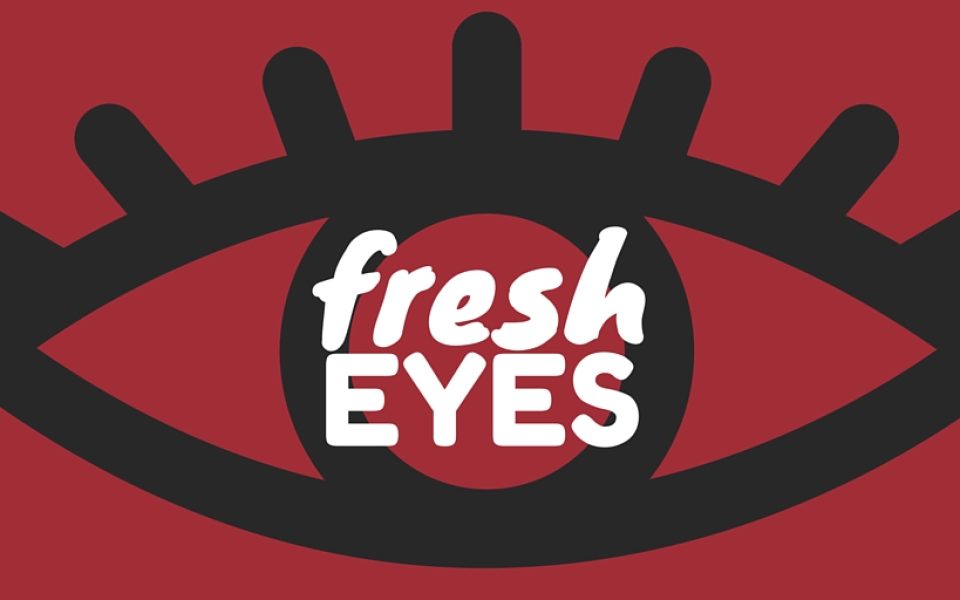 by Daniel Bayer
by Daniel Bayer
It’s two days after the last Republican primary that mattered. As I sit here, the GOP is now imploding over whether to support real estate developer/’80s joke/reality TV star/ KKK-endorsed Donald Trump as their standard-bearer in the fall. The mood is apocalyptic; we’re in uncharted waters here, the world’s turned upside down and any number of clichés signifying change on a heretofore-unseen level now apply. What the hell just happened?
Actually, I know what happened. I’ve feared this for years, hoping that we’d make it through the biggest demographic change in US history unscathed, that a society built almost entirely on white political and economic power and cultural identity could somehow transition itself to a multi-cultural one where whites are just another non-majority group living together in peace, harmony and brotherhood with everyone else. And while saner heads might still prevail, Trump’s campaign has just blown a huge hole in that hope.
Some of Trump’s appeal is rooted in real economic issues for working-class people of any race. Low wages, lack of opportunity, a sense of struggling and getting nowhere… these are all problems that we as a nation should discuss. But much of his message, with its xenophobia towards Latinos and Muslims, was directed at white people who feel increasingly marginalized economically and culturally in our country. These are the people whose decreasing life expectancy caused public health experts to sit up and take notice last fall, the ones whose lives are constrained by low-wage employment, disability checks and poverty-driven dysfunction, the ones who increasingly feel lost in a world where the values that they were raised to believe in seem out of touch on issues such as same-sex marriage, and most importantly the ones who were told over and over again by politicians from Ronald Reagan to Sarah Palin that they were the “real Americans,” that the culture of this country reflected who they were, and that they were entitled to the “American Dream.”
Now I know at this point some of you are saying, “So what? Politicians who played on their fear of minorities bamboozled these people time and time again into voting against their own economic interests. They were the ones who rallied around segregationists like George Wallace and even today support discriminatory laws like HB2. All these years they’ve gotten by thanks to white privilege, and now they want us to feel sorry for them? If they’re dropping dead, they’re not dropping dead fast enough.”
I can’t say I disagree with why you’d feel that way. I frequently argued these very points with my fellow whites in factories and warehouses, pointing out that they were being played for rubes, that their economic problems had nothing to do with immigrants or minorities and everything to do with the dismantling, usually by the very politicians they’d voted for, of the post-New Deal infrastructure that created and sustained the middle class. Yet the next election would come around and they would inevitably vote for yet another politician using dog-whistle rhetoric to play upon their fears of minorities. So in a very true sense, they helped bring their present condition upon themselves. As George W. Bush might say, “Fool me once, shame on you… fool me twice… can’t get fooled again.”
They won’t go down without a fight, however, and there are plenty of opportunists willing to play to their sense of despair and outrage. They can’t win in the long run, of course. The demographics are against them; white people will be a minority in the United States by 2045 according to most estimates, and white people who resent their loss of social domination will be an even smaller subset of that. Unlike the Reconstruction or post-civil rights eras, they simply won’t have the numbers to put the genie back in the bottle.
So what can we do about this? While a symbolic, negotiated “handing over of power” is probably out of the question, we need to realize how monumental this demographic change is going to be, and we need to pull these marginalized people back into what’s becoming the new mainstream of our society. Letting them fester in their resentment isn’t going to work. It’s not good for them, and as increasingly acrimonious debates over everything from immigration to LGBT rights demonstrate, it’s not good for our society as a whole either. We need to reach out and let them know that while their values may no longer be the default ones for society as a whole, their fear is misplaced. They may no longer be the ones calling the shots, but there is still a place for them in the vibrant, diverse society that will develop in the next 30 years.
Daniel Bayer is a musician and writer who lives in Greensboro.
Join the First Amendment Society, a membership that goes directly to funding TCB‘s newsroom.
We believe that reporting can save the world.
The TCB First Amendment Society recognizes the vital role of a free, unfettered press with a bundling of local experiences designed to build community, and unique engagements with our newsroom that will help you understand, and shape, local journalism’s critical role in uplifting the people in our cities.
All revenue goes directly into the newsroom as reporters’ salaries and freelance commissions.


Stagnant, worn-out, half-century deluded eyes.
I always wondered what it was Bush said, and the demographics haven’t changed much–there’s two black males on city council who just got reamed by Human Relations (their demographics I do not know, although HR is clearly in touch with the rest of us–unlike Trump supporters, who I land like Target lands hackers based on my looks alone).